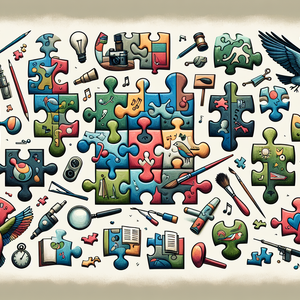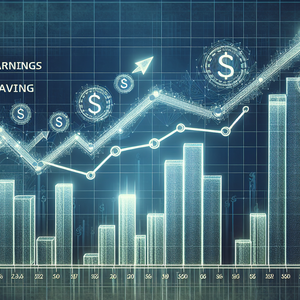The PayPal Revolution: How Elon Musk Shaped Online Payments

The story of PayPal dates back to the late 1990s when Elon Musk co-founded X.com, an ambitious online payment platform aimed at revolutionizing money transfer over the internet. At a time when the internet was still nascent, the concept of online banking and payments faced skepticism from both consumers and traditional financial institutions. However, Musk's entrepreneurial spirit and forward-thinking approach positioned X.com as a pioneer in the industry. In March 2000, X.com merged with Confinity, a company that had developed a money-transfer service called PayPal. This merger was pivotal, as it combined Musk's visionary outlook with Confinity's technological capabilities, creating a robust platform for online payments. In 2001, under Musk's leadership as CEO, the company rebranded itself as PayPal, marking a significant turning point in its journey.
Innovative Features and User Experience
One of Musk's paramount contributions to PayPal was his unwavering commitment to user experience. He understood that for an online platform to succeed, it must be user-friendly. Under his guidance, PayPal introduced several innovative features that distinguished it from its competitors. Notably, Musk was a proponent of email-based payments, which allowed users to send money simply by entering the recipient's email address. This streamlined the payment process and made it accessible to a broader audience, breaking down barriers that had previously hindered online transactions. Moreover, Musk recognized the critical importance of security in online transactions. He championed the implementation of robust fraud protection measures that helped build consumer trust in the platform. By prioritizing user safety and convenience, Musk positioned PayPal as the go-to solution for online payments, enabling it to flourish in an increasingly digital environment.
The Financial Landscape Transformation
Musk's vision extended well beyond creating a successful payment platform; he sought to revolutionize the entire financial landscape. During a time when traditional banking systems were reluctant to embrace the internet, Musk's efforts at PayPal heralded a new era of digital finance. The service became a lifeline for small businesses and individuals seeking efficient, low-cost ways to conduct transactions. By 2002, PayPal's impact was undeniable, culminating in its acquisition by eBay for $1.5 billion—a validation of Musk's original vision. This acquisition not only solidified PayPal's status as a leader in online payments but also illustrated the potential for digital transactions to disrupt traditional banking models. The success of PayPal demonstrated that consumers were ready to embrace the digital transition, paving the way for future innovations in the financial sector.
Impact on Elon Musk's Future Ventures
The success of PayPal played a crucial role in shaping Musk's subsequent entrepreneurial endeavors. The wealth he accumulated from the sale of PayPal provided him with the financial backing necessary to pursue ambitious projects like SpaceX and Tesla. Additionally, the insights and experiences he gained during his tenure at PayPal significantly influenced his approach to innovation and entrepreneurship. Musk's experience at PayPal taught him valuable lessons about scalability, user engagement, and resilience in the face of challenges. These principles became foundational to his future endeavors, equipping him to tackle complex industries and push the boundaries of technology. His ability to leverage the lessons learned at PayPal has been evident in the transformative approaches he has taken with companies like Tesla, where user experience and innovation remain at the forefront.
Elon Musk's role in the creation and evolution of PayPal stands as a testament to the power of innovative thinking and the potential for digital transformation. His visionary contributions not only revolutionized online payments but also laid the groundwork for a new era in finance. As we continue to navigate the complexities of the digital age, Musk's influence serves as a reminder of the importance of embracing change and striving for excellence in every endeavor. The PayPal revolution was just the beginning; its legacy continues to shape the financial landscape today, influencing how we view and conduct transactions in an increasingly interconnected world. Musk's journey from PayPal to his subsequent ventures illustrates the profound impact of innovation on shaping the future.
Digital Payments Product Manager
PayPal, Square, Stripe
Core Responsibilities
Oversee the development and launch of new payment features and services, ensuring alignment with user needs and market trends.
Collaborate with engineering, design, and marketing teams to create a seamless user experience for digital payment solutions.
Analyze user feedback and transaction data to drive product improvements and strategic decisions.
Required Skills
Strong understanding of payment systems, e-commerce, and user experience design.
Experience with Agile methodologies and product lifecycle management.
Analytical mindset with proficiency in data analysis tools (e.g., SQL, Excel).
Cybersecurity Analyst for Financial Services
PayPal, JPMorgan Chase, Visa
Core Responsibilities
Monitor and respond to security threats targeting online payment systems and customer data.
Conduct vulnerability assessments and penetration testing to identify and mitigate potential risks.
Collaborate with development teams to implement security best practices during the software development lifecycle.
Required Skills
Knowledge of financial regulations (e.g., PCI DSS) and cybersecurity frameworks (e.g., NIST, ISO 27001).
Familiarity with security tools and technologies, such as firewalls, intrusion detection systems, and encryption protocols.
Strong problem-solving skills and the ability to communicate complex security concepts to non-technical stakeholders.
User Experience (UX) Designer for Payment Platforms
PayPal, Square, Adyen
Core Responsibilities
Design intuitive and user-friendly interfaces for payment applications, focusing on enhancing user engagement and satisfaction.
Conduct user research and usability testing to gather insights and iterate on design solutions.
Collaborate with product managers and developers to create wireframes, prototypes, and design specifications.
Required Skills
Proficiency in design tools such as Sketch, Figma, or Adobe XD.
Strong understanding of user-centered design principles and accessibility standards.
Experience with A/B testing and data-driven design improvements.
Compliance Officer for Digital Finance
PayPal, American Express, Bank of America
Core Responsibilities
Ensure that the organization adheres to all relevant financial regulations and compliance requirements related to online payments.
Conduct regular audits and risk assessments to identify potential compliance issues and implement corrective actions.
Develop and deliver training programs to educate employees about compliance policies and procedures.
Required Skills
In-depth knowledge of financial regulations, including AML (Anti-Money Laundering) and KYC (Know Your Customer) standards.
Strong analytical skills and attention to detail in reviewing policies and procedures.
Excellent communication skills for reporting and liaising with regulatory bodies.
Data Analyst in Fintech
PayPal, Square, Plaid
Core Responsibilities
Analyze transaction data to identify trends, customer behavior, and potential areas for improvement in payment services.
Develop dashboards and reports to present findings to stakeholders, influencing product and marketing strategies.
Work closely with cross-functional teams to support data-driven decision-making processes.
Required Skills
Proficiency in data analysis tools and programming languages, such as Python, R, or SQL.
Experience with data visualization tools like Tableau or Power BI.
Strong problem-solving skills and the ability to communicate complex data insights effectively.


